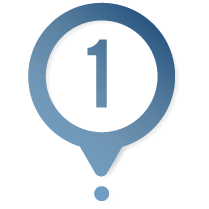Research & Referencing

This page will give information about the databases you can use to find useful information. It will teach you what to use each database for and hope to search using some more advanced features.
What is a Database
Boolean Operations
Open Access Academic Databases

Access millions of publications and connect with 15+ million researchers for free! Discover scientific knowledge, and make your research visible.
Join over 10.5 million Academics and Researchers to access millions of scholarly articles for free! Academia is the easiest way to share papers with millions of people across the world for free.
BASE (Bielefeld Academic Search Engine)

High Wire (Stanford University)
Overview

A database is a searchable collection of information. A research database is where you find journal, magazine, and newspaper articles. Each database contains thousands of articles published in many different journals, allowing you find relevant articles faster than you would by searching individual journals.
Some databases provide the full text of articles. Others provide abstracts, or summaries, only.
Searching a Library database is different from searching the Internet.
| Internet | Database | |
| Examples | Google, Wikipedia | Academic Search Complete, JSTOR, OVID, Gale |
| Authority/Credentials | Anyone can publish and anyone does. Difficult to verify credentials. Results are not always scholarly | Authority/credentials are guaranteed. Most articles are scholarly and peer-reviewed. |
| Results | Thousands. Duplicates are not filtered out. Many are not scholarly. | Hundreds or fewer. Duplicates are filtered out. You can limit to full text. |
| Relevance | Lots of “noise” because there are no subject headings assigned. Information can be biased, untrue, or irrelevant. | Databases focus on specific subjects. Offer fewer but more relevant results. Results are from scholarly publishers and authors. |
| Limiters | Can limit by document type (pdf, doc) and source (gov, org, com) | Can limit by date, document type, language, format, peer-reviewed status, full-text availability, and more. |
| Stability of information | Information from the Internet is unstable. It can disappear at any time. Researchers will often be asked to pay a fee to access journal articles. (Note: These articles are available to you via the Library as part of your tuition.) | Databases are a collection of articles that have appeared in journals. This makes their status more stable than the Internet. The information is paid for by subscription to be offered as part of a student’s tuition. |
Oliver Integrated Databases
Gale In Context: High School offers cross-curricular content that includes full-text newspapers and periodicals such as The Economist, The New York Times, National Geographic, and Popular Science. There are hundreds of thousands of images, videos, and audio selections that include archival film clips and broadcast video from internationally respected sources, including BBC News and New York Times video.
Encyclopedia Britannica is an authoritative online research reference database. It contains curriculum resources for all year levels including multimedia images, audio and video. Information is sourced from partner institutions and knowledge experts from around the world and is fact-checked to ensure accuracy.
Weblinks is an online database of thousands of teacher-reviewed websites. These websites are curriculum matched and chosen for content that best meets student needs.
Databases Outside of Oliver
Delve into over 30 years of archive content from the well-known science publication New Scientist. Their website also contains 100+ science talk videos - incredible talks with inspiring speakers.
TWIG - Science resources for the curriculum. TWIG contains science curriculum mapped videos made by a team of teachers, filmmakers, writers, researchers, academics, and parents. Search and browse through the mind-map interface to find resources for your class.
External Databases

ANZAC Portal - Australia's military and service history
Auslit - Australian literature and storytelling, with biographical and bibliographical information
Australian Bureau of Statistics - Australia's national statistical agency
Australian Dictionary of Biography - Australia's dictionary of national biography
Australian National Dictionary - A dictionary of Australianisms
Australian Poetry Library - Tens of thousands of poems from hundreds of Australian poets
BBC Earth - Anything from big questions about our Universe to the road to humanity and how we got here
Churchill Archive for Schools - Classroom-ready resources written by leading history teachers
CIA World Fact Book - Information on the history, people and society, government, economy, energy, geography, communications, transportation, military, and transnational issues for 267 world entities.
Discovery Channel - Videos and content from the Discovery Channel
Encyclopedia of Earth - Electronic reference about the Earth, its natural environments, and their interaction with society
Encyclopedia Mythica - Mythology. Folklore. Religion
Folger Digital Shakespeare Library - Full texts of Shakespeare’s plays, sonnets, and poems
Great Barrier Reef Marine Park Authority Resources - Resources about the Great Barrier Reef
International Encyclopedia of the First World War - Virtual reference work on the First World War
National Science Digital Library - Educational resources for teaching and learning, with current emphasis on STEM
NationMaster Country Profiles - International statistics database with a wide range of economic and demographic indicators
Open Textbook Library - Textbooks that have been funded, published, and licensed to be freely used, adapted, and distributed
Pandora - Australia's Web Archive
Science Bob - Easy science experiments, videos and science fair ideas
Science Learning Hub - New Zealand science education resources
SciShow Psych - YouTube channel that explores the human mind
SciShow Space - YouTube channel about all things space
Smart history - History of Art
Teach Astronomy - Astronomy learning tool
TROVE - Explore collections from Australian libraries, universities, museums, galleries and archives.






